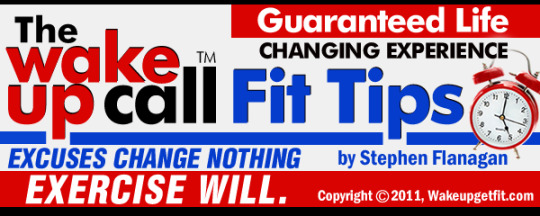The Wake Up Call: Excuses Change Nothing. Exercise Will.
Note: Please consult your doctor before undertaking any exercise program.
The Heart – your body’s motor.
Imagine your body as a car, with your heart as the motor.
Would you put leaded petrol in an unleaded tank?
Why do you put oil and water into your vehicle?
Why do you service and tune your car?
What would happen if you didn’t take care of the car? Could it just keep running
indefinitely? Your body is the most valuable vehicle you’ll ever own, and you only get
one.
Now, how are you going to treat your body’s motor from now on?


